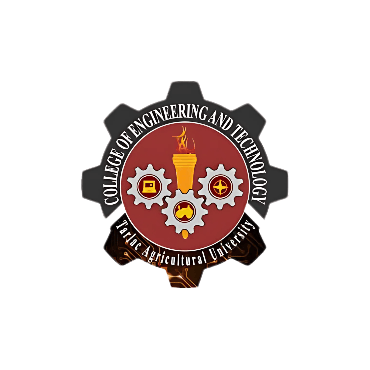Program Outcomes
Master of Science in Agricultural Engineering
Graduates of the Master of Science in Agricultural Engineering are expected to:
- Have advanced knowledge and skills in a specialized, interdisciplinary, or multidisciplinary field of study for professional practice.
- Conduct self-directed research in consonance with the university Research Development and Extension Agenda.
- Demonstrate lifelong learning skills with a highly substantial degree of independence that involves individual work or teams of interdisciplinary or multidisciplinary experts.
- Demonstrate application of the above-mentioned skills in research, professional, or creative work.
Bachelor of Science in Agricultural and Biosystems Engineering
Graduates of the Bachelor of Science in Agricultural and Biosystems Engineering are expected to:
- Apply knowledge of mathematics and physical sciences to solve engineering problems.
- Design and conduct experiments as well as to analyze and interpret data.
- Design a system, component, or process to meet desired needs within realistic constraints such as economic, environmental, social, political, ethical, health and safety, manufacturability, and sustainability, in accordance with standards.
- Function in multidisciplinary and multicultural teams.
- Identify, formulate, and solve engineering problems.
- Practice professional and ethical responsibility.
- Communicate effectively.
- Derive the impact of engineering solutions in a global, economic, environmental and societal context.
- Recognize the need for and ability to engage in lifelong learning.
- Relate contemporary issues to his/her profession.
- Use techniques, skills and modern engineering tools necessary for engineering practice.
- Apply engineering and management principles as a member and leader in a team, who manage projects and in multidisciplinary environments.
- Perform independent research that results in innovation and practical application.
- Articulate and discuss the latest developments in the specific field of practice.
- Generate new knowledge or in research and development projects.
- Preserve and promote “Filipino historical and cultural heritage”.
Bachelor of Science in Geodetic Engineering
Graduates of the Bachelor of Science in Geodetic Engineering are expected to:
- Apply knowledge of mathematics and physical sciences to solve geodetic engineering problems.
- Design and conduct experiments as well as to analyze and interpret data.
- Design a system, component or process to meet desired needs within realistic constraints, in accordance with standards.
- Function in multidisciplinary and multicultural teams.
- Identify, formulate, and solve geodetic engineering problems.
- Practice professional and ethical responsibility.
- Have at least one focus area of geodetic engineering practice and apply such knowledge to provide solutions to actual problems.
- Communicate effectively.
- Engage in life-long learning and to keep current of the development in a specific field of specialization.
- Use techniques, skills and tools necessary for the practice of geodetic engineering.
- Exhibit knowledge in contemporary issue under the program.
- Perform independent research that results in innovation and practical application.
- Support “national, regional and local development plans;”
- Articulate and discuss the latest developments in geodetic engineering.
- Preserve and promote “Filipino historical and cultural heritage.”
Bachelor of Science in Information Technology
Graduates of the Bachelor of Science in Information Technology are expected to:
- Effectively communicate (through oral and written form) using both English and Filipino.
- Work effectively and independently in multi-disciplinary and multi-cultural teams.
- Participate in various types of employment, developmental activities, and public discourses, particularly in response to the needs of the communities served by the graduate.
- Have the competencies to support “national, regional and local development plans”.
- Behave ethically and responsibly as members of their profession and society as a whole.
- Be well-founded in the variety of sub-disciplines that comprise Information Technology which includes basic principles of computation mathematics, science and engineering.
- Develop a comprehensive plan for the architecture for the corporation’s data, systems and technology that will guide future research and development efforts.
- Design, manage, revise, upgrade and implement the information infrastructure of the organization and apply new technologies that will give the organization competitive edge in the market place.
- Organize and protect the firm's data resources as any other corporate assets and provide tools so that the use can access the data more readily.
- Help evaluate and select computer systems for small and medium enterprises.
- Develop computer-based application software/s.




